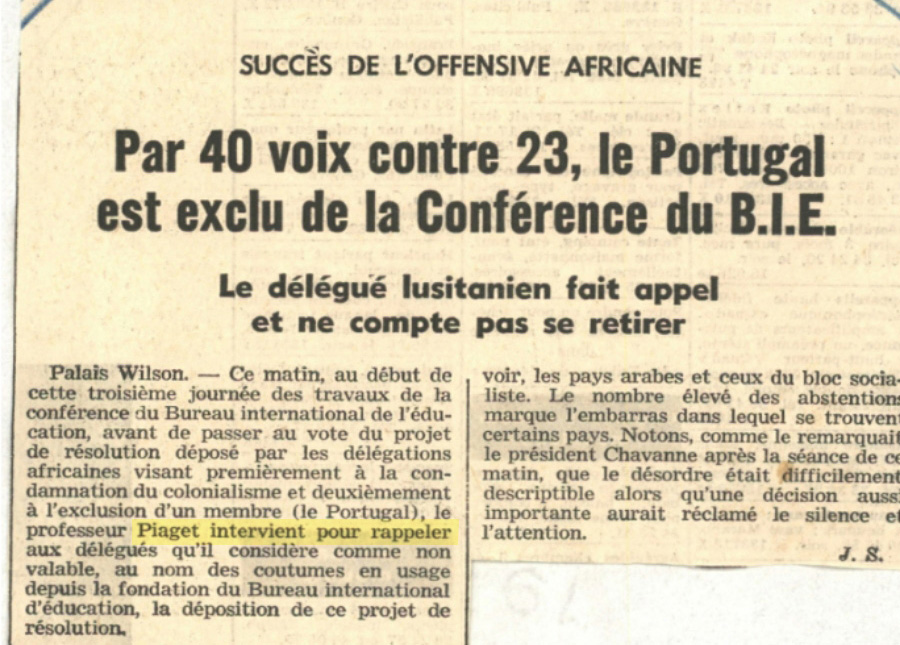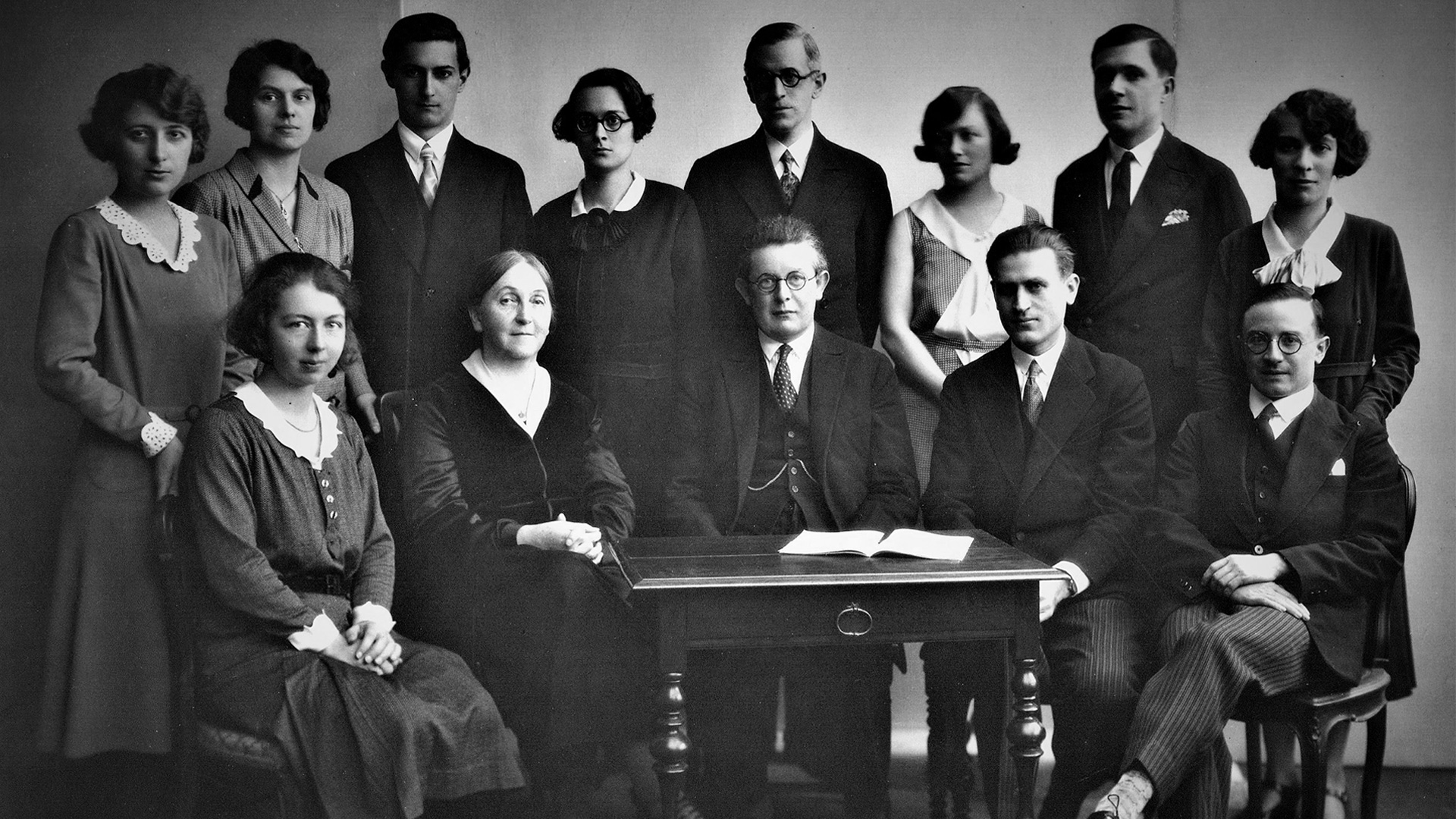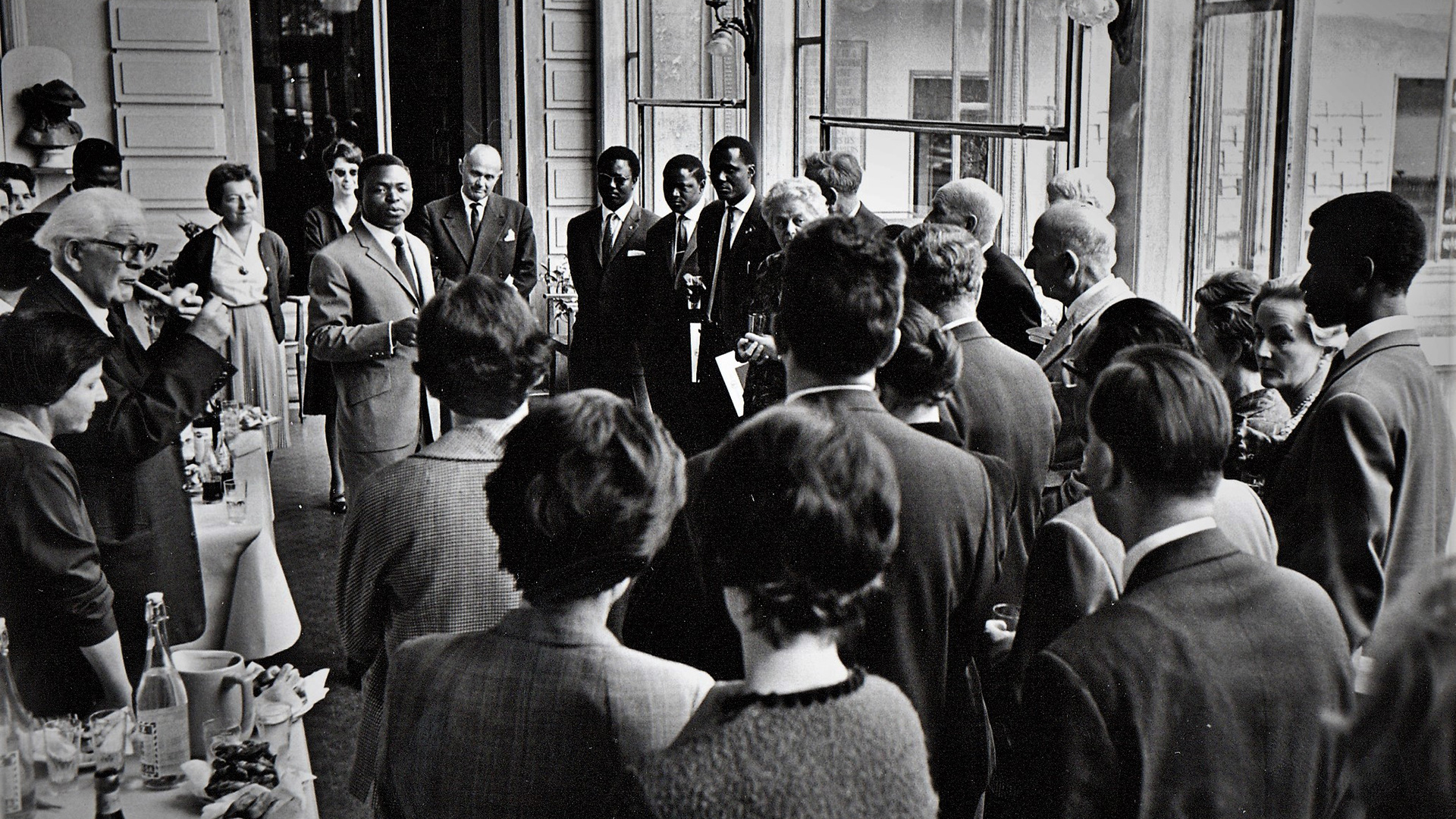
1925
The IBE is created as a private Swiss association
During its first years, the IBE organized courses, study visits, exhibitions, and conferences, and gathered and disseminated information on all matters related to education.

1929
Signature of the New Statutes
Jean Piaget, the eminent Swiss psychologist, is appointed director, with Pedro Rossello, a Spanish educationist, as his deputy. Together, they led the IBE for almost forty years.

1932
First session of the ICPE
The IBE starts convening sessions of the International Conference on Public Education (ICPE) through the intermediary of the Swiss Federal Council (an arrangement that continued until 1946), inviting ministries of education to present reports on recent educational developments in their countries.

1934 · 1939
Third to Eighth ICPEs
Authoritarian and democratic regimes discussing together.

1946
Nineth ICPE
Last International Conference on Public Education (ICPE) organizedby IBE alone.

1947
Tenth ICPE
First International Conference on Public Education (ICPE) organized by IBE and UNESCO together.

1954
Sixteenth ICPE
After Stalin’s death, the Communist States were present again; Cold War entered IBE.

1960
Participation of ancient colonized countries
More and more ancient colonized countries participated in IBE’s activities.

1963 · 1964
Exclusion of the colonial Portugal
Majority of African, Arab and Communist countries excluded the colonial Portugal from the International Conference on Public Education (ICPE).

1967
Resignation of Jean Piaget
Letter of resignation of Jean Piaget as Director of the IBE.
1969
Integration of the IBE to UNESCO
The IBE becomes an integral part of UNESCO, as an international center of comparative education, with a mandate of pursuing research particularly in the area of comparative education and maintaining educational documentation and information services.
Note on the IBE and the League of Nations
Piaget and the secretariat defended the neutral, Swiss-situated IBE against the French IICI’s tendency to intervene in international educational matters.


1938
Letters
Courting all the governments of the world, be they fascist (Italy) or democratic (USA): Desire to balance by all means.


1931
The ascension from the individual to the universal
The ideal of the ICPEs: based on the conception of moral and solidarity in child development.

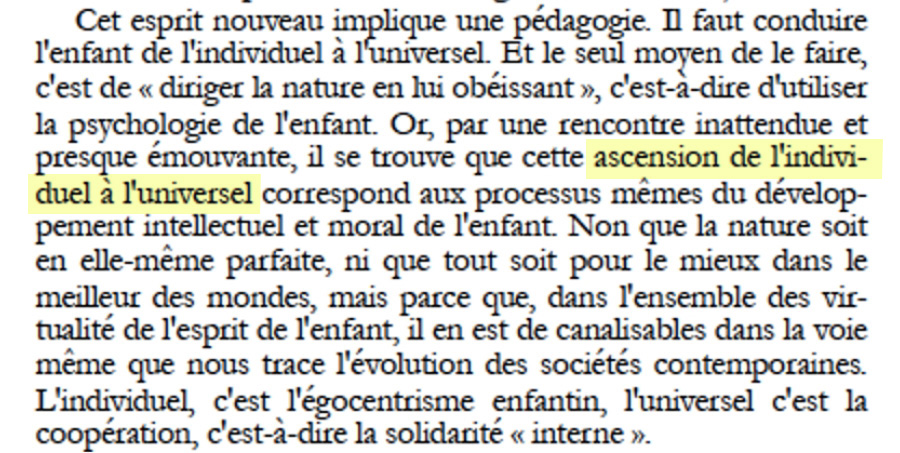
1955
Piaget: Diplomat during the Cold War
Piaget regularly intervened in the bodies of the BIE so that all the countries of the world were invited to participate in the IICE, independently of their political regime: it is the concrete application of the principle of neutrality.
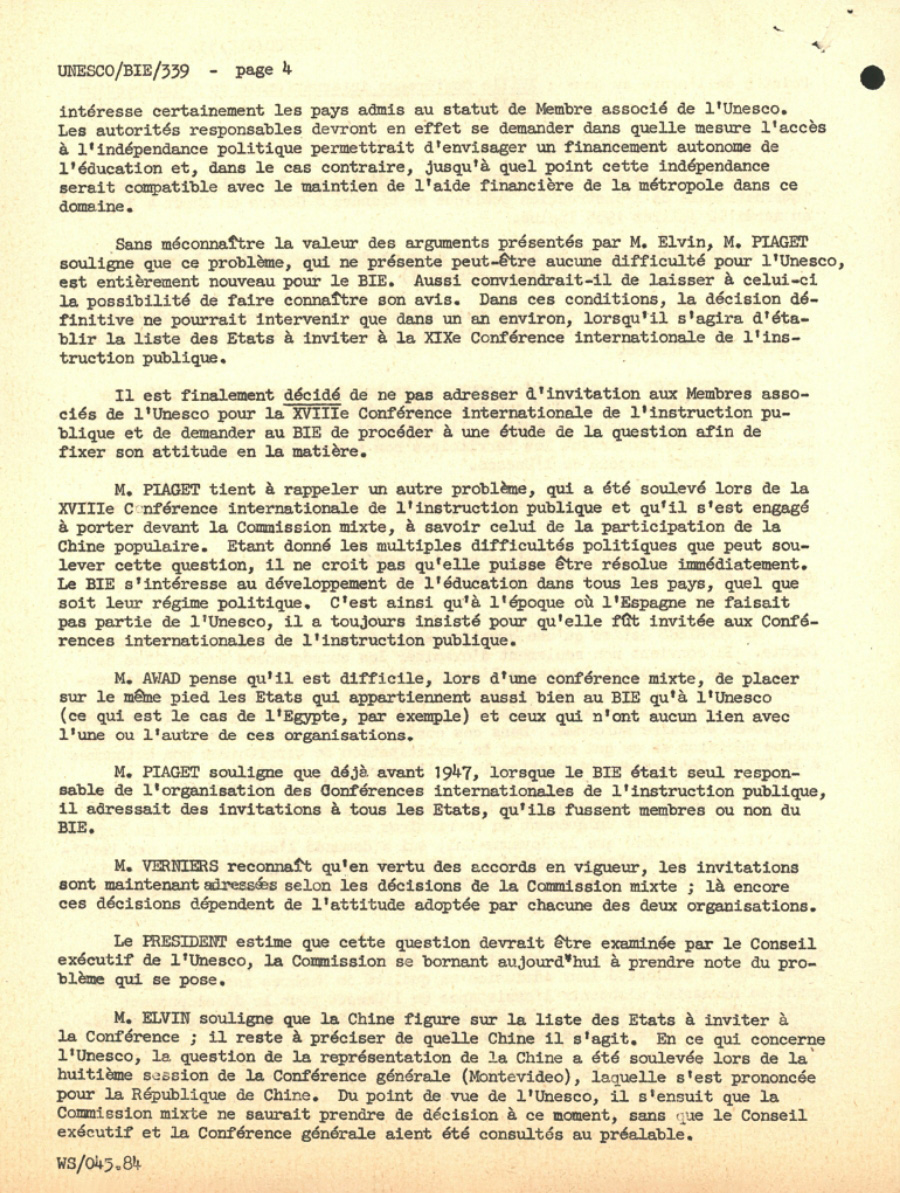
1963 · 1964
Piaget and the rise of newly independent countries, the ancient colonies
Piaget regularly condemned colonialism. But, faithful to the principle of neutrality and respect for the legal rules in force, he opposed the exclusion of Portugal from the IBE proposed by the African states and supported in particular by the communist countries. In 1963, the ICPE continued; in 1964, he left the ICPE after the vote of exclusion.
